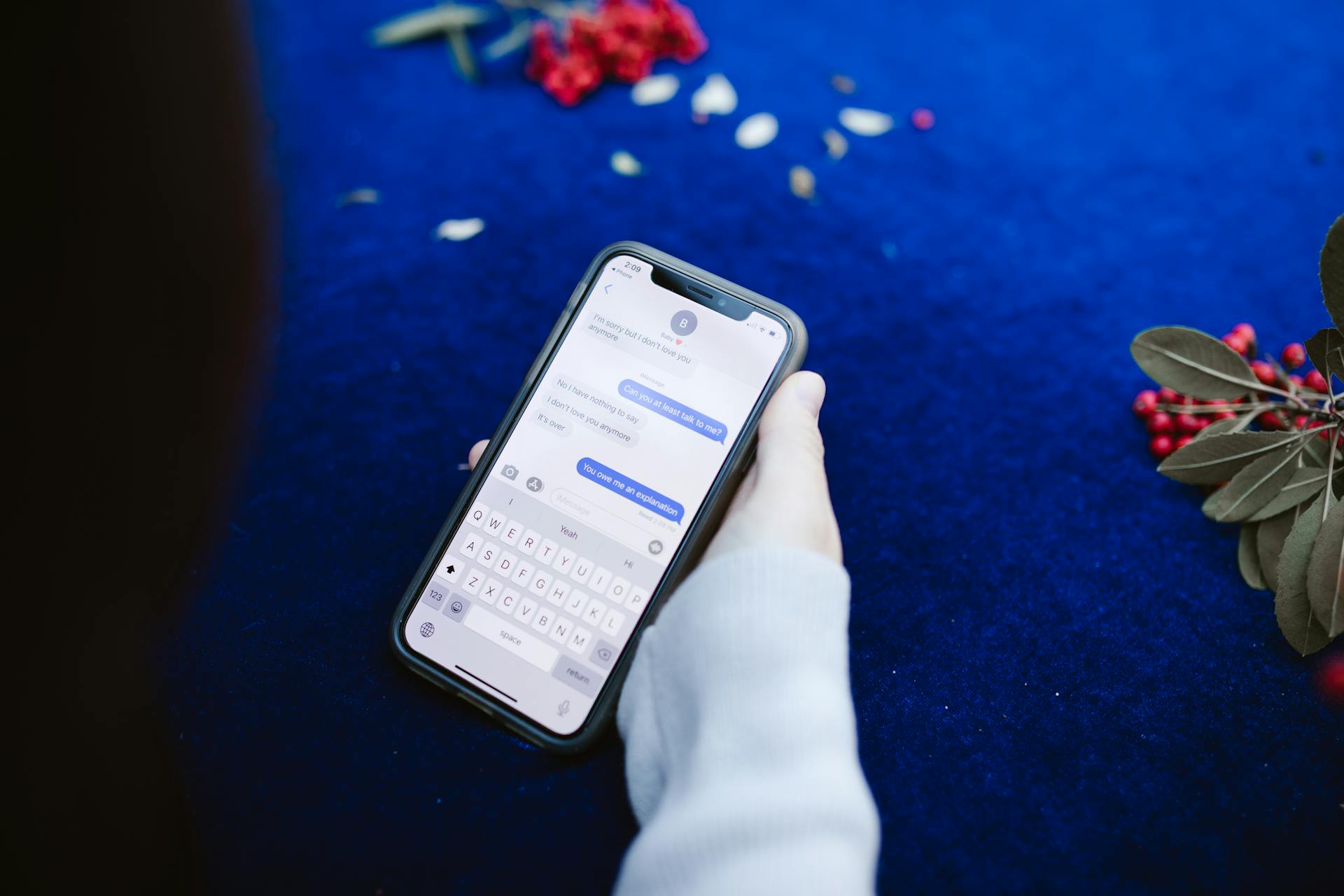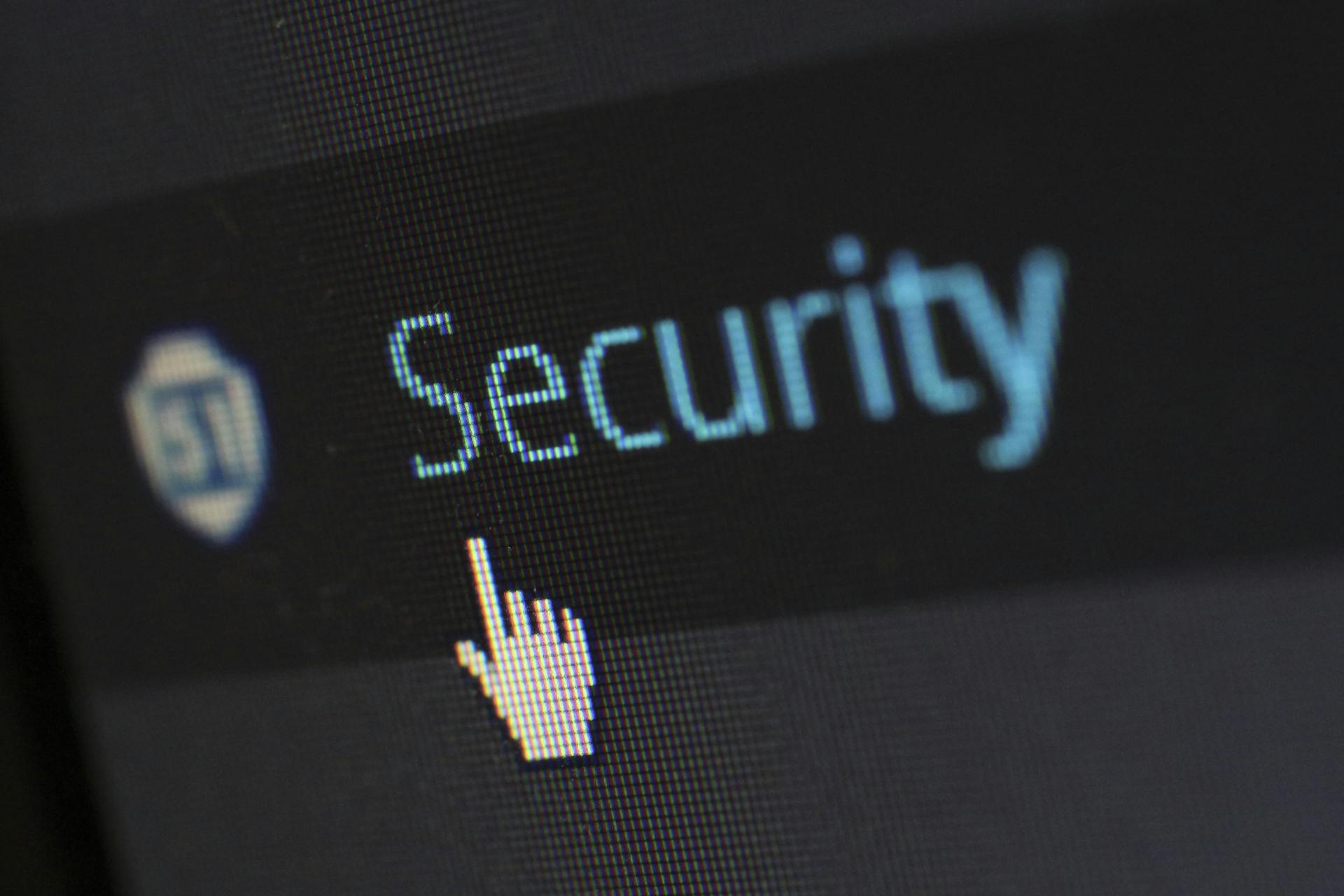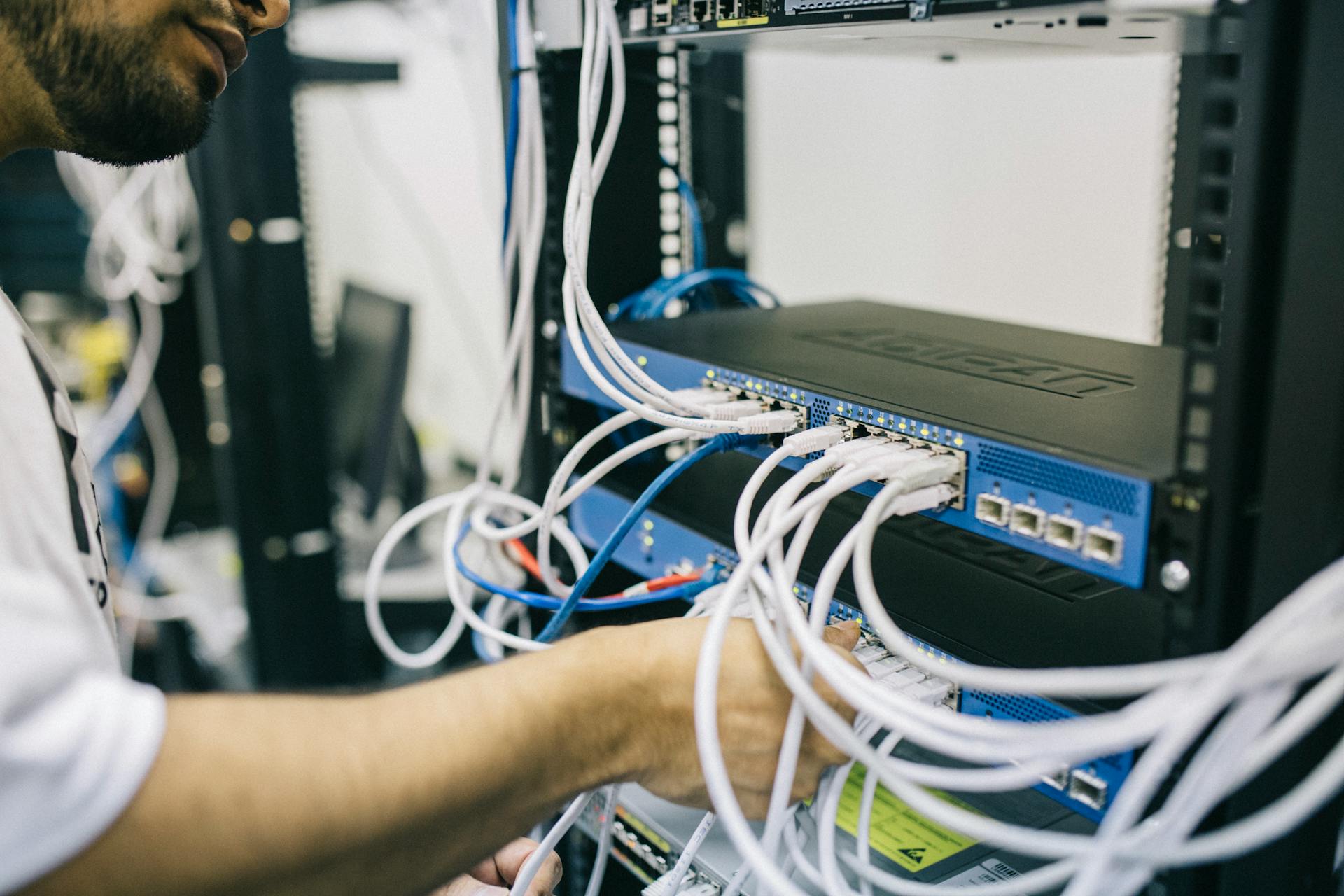
HIPAA compliant texting is a must for healthcare professionals who need to send sensitive patient information via text message.
The Office of Civil Rights (OCR) states that covered entities must have a system in place to ensure the confidentiality, integrity, and availability of electronic protected health information (ePHI).
To be HIPAA compliant, a texting platform must have a secure end-to-end encryption, which protects the data from being intercepted or read by unauthorized parties.
What is HIPAA Compliant Texting?
HIPAA compliant texting is a must for healthcare providers and businesses that handle protected health information (PHI). It's a way to ensure that patient data is kept secure when transmitted via text messaging.
To achieve HIPAA compliance, you need to implement encryption for all ePHI transmitted via text messaging. This is a crucial step in protecting sensitive information.
Using secure messaging apps that sign a Business Associate Agreement (BAA) is also a requirement. This agreement ensures that the messaging app follows HIPAA rules and protects PHI.
You should also ensure that access controls are in place, including two-factor authentication. This adds an extra layer of security to prevent unauthorized access to PHI.
Regular training for staff on HIPAA compliance and secure texting practices is essential. This will help prevent errors and ensure that everyone is following the rules.
Here's a checklist to get you started:
- Conduct regular risk assessments to identify potential vulnerabilities.
- Implement encryption for all ePHI transmitted via text messaging.
- Use secure messaging apps that sign a Business Associate Agreement (BAA).
- Ensure access controls are in place, including two-factor authentication.
- Train staff regularly on HIPAA compliance and secure texting practices.
- Obtain written patient consent for text communications.
- Archive message history and integrate auditing capabilities.
- Ensure mobile devices used for texting are secure and have remote wipe capabilities in case of loss or theft.
HIPAA Compliant Texting Rules and Regulations
HIPAA compliant texting rules and regulations are in place to protect patients' sensitive information. These rules are strict, with penalties ranging from $100 to $50,000 per day for violating HIPAA regulations.
To ensure compliance, healthcare organizations must develop processes and procedures for accessing and using health information, conduct periodic risk assessments, and implement encryption and data protection on personal mobile devices. They must also delete PHI remotely when mobile devices are lost, stolen, or need to be disposed of.
Here are some key HIPAA compliant texting rules:
- Only authorized personnel can access PHI.
- Organizations must obtain patients' consent to communicate via text.
- PHI cannot be saved and stored on mobile devices used by employees and subcontractors.
- Text messages must be encrypted and secure.
By following these rules and regulations, healthcare organizations can avoid hefty fines and maintain the trust of their patients.
Is HIPAA Compliant Texting Necessary?
HIPAA Compliant Texting is a must for healthcare providers and their texting platforms. Any platform handling protected health information (PHI) must follow HIPAA rules to keep PHI secure.
Business Associates (BAAs) must also follow HIPAA rules when handling PHI for a covered entity. This includes a healthcare provider's texting platform.
Non-compliance with HIPAA guidelines can lead to hefty penalties. You can avoid these penalties by ensuring your texting with patients is HIPAA-compliant.
Regulation Penalty
HIPAA violations can result in significant financial penalties, ranging from $100 to $50,000 per day, depending on the severity of the infraction.
If your staff member breaks a HIPAA Rule, the matter can be handled internally, the staff member can be terminated, or the practice could face sanctions from professional boards.
Civil penalties start at $100 per violation and can rise up to $25,000 if there were multiple violations of the same kind. Penalties apply to individuals who are aware that HIPAA regulations were being violated or should have been aware.
Criminal penalties are more severe, with a minimum fine for a willful violation being $50,000 to a maximum of $250,000. In addition to this financial penalty, the board could also call for a jail term.
Here's a breakdown of the potential outcomes of HIPAA Rule violations:
In 2019, the American Medical Collection Agency (AMCA) failed to comply with HIPAA regulations and couldn't protect the sensitive healthcare information of its patients, resulting in a data breach that exposed the personal health information of about 20 million individuals. The breach invited an extensive investigation and made the organization liable for $21 million as a penalty.
7 Benefits of HIPAA Compliant Texting
HIPAA compliant texting is a game-changer for healthcare providers. Data is secure with a HIPAA compliant texting solution in place, ensuring that the data shared meets protocols and is transmitted and stored securely.
By using a HIPAA-compliant text messaging solution, your practice can avoid penalties and violation fees that come with violating regulations. This can save you a lot of money and stress.
Readers also liked: Hipaa Compliant Computer Disposal
With a seamless and secure flow of information to and from your practice management system, you can access all patient data in one platform. This makes it easier to keep track of patient information and make informed decisions.
Automating appointment reminders, confirmation, and payment messages through a HIPAA-compliant texting service can increase operational efficiency. This means your staff has more time to focus on making patients feel cared for and welcome.
Two-way messaging guarantees your practice will receive a timely response from patients since patients prefer text messages over phone calls. This helps ensure that patients are engaged and responsive to your messages.
Secure messaging allows your practice to maximize patient access by sending practice updates, pre and post-op instructions, and other types of communication that help reduce call volumes. This can lead to a more streamlined and efficient communication process.
Here are the 7 benefits of using HIPAA compliant texting:
- Data is secure
- Avoid penalties and violation fees
- Integrates with your practice management system
- Increased operational efficiency
- Patient engagement
- Staying connected
- Better health outcomes
HIPAA Compliant Texting Solutions
HIPAA compliant texting solutions are designed to keep patient data secure, with end-to-end encryption protecting ePHI during transmission. This ensures that only authorized users can read messages, even if they are intercepted during transit.
To ensure HIPAA compliance, look for solutions that implement access controls and audit logs. These features restrict access to ePHI and track who accessed the information and any changes made.
Some key characteristics of HIPAA-compliant texting solutions include:
- End-to-end encryption
- Secure messaging solutions that sign a Business Associate Agreement (BAA)
- Access controls and audit logs
These solutions can help healthcare providers enhance security, increase efficiency in patient communication, and reduce no-show rates. By choosing a HIPAA-compliant texting solution, you can stay compliant with regulations and avoid hefty fines.
Benefits of Solutions
Using HIPAA compliant text messaging solutions can significantly enhance the security of your communications, ensuring that ePHI is encrypted, access is controlled, and audit logs are maintained, reducing the risk of data breaches and unauthorized access.
These solutions streamline communication between healthcare providers and patients, leading to faster information exchange, quicker response times, and improved patient engagement. Secure messaging allows providers to send appointment reminders, follow-up messages, and prescription refill notifications promptly.

Automated text reminders and confirmations help reduce no-show rates for appointments, ensuring better utilization of staff time and resources. Secure messaging platforms can also facilitate efficient internal communication among healthcare staff, leading to improved productivity and coordination.
Data is secure with HIPAA compliant texting solutions, and you can rest assured that the data you share meets protocols and is transmitted and stored securely. This is especially important for healthcare providers who handle sensitive patient information.
Two-way messaging guarantees your practice will receive a timely response from your patients since patients prefer text messages over phone calls. Secure messaging allows your practice to maximize patient access by sending practice updates, pre and post-op instructions, and other types of communication that help reduce call volumes.
By using HIPAA compliant text messaging solutions, you can avoid penalties and violation fees associated with non-compliance. These solutions also integrate with your practice management system, providing a seamless and secure flow of information to and from your practice management system.
HIPAA compliant texting solutions can help you build a stable and profitable healthcare practice by getting patients into your office faster and booking more appointments. By automating appointment reminders, confirmations, and payment messages, your staff has more time to focus on making your patients feel cared for and welcome.
Suggestion: Data Classification Hipaa
Devices and Networks
Using secure devices and networks is crucial for HIPAA compliant texting. Healthcare providers must use secure devices and networks for text messaging.
Personal mobile devices often lack the necessary security measures, making them vulnerable to breaches. Dedicated secure messaging platforms should be used, which offer built-in safeguards to protect PHI.
You can minimize the risk of unauthorized access to PHI by implementing strong password authentication and using a HIPAA-compliant text messaging service. This ensures that data is only privy to authorized personnel.
Some best practices for securing mobile devices include requiring strong passwords and enforcing regular password changes. Multi-factor authentication should also be enabled for added security.
Here are some key measures to take when securing mobile devices:
- Require strong passwords and enforce regular password changes.
- Enable multi-factor authentication (MFA) for added security.
- Install and maintain up-to-date security software on mobile devices.
- Encrypt sensitive data stored on mobile devices.
- Implement remote wipe capabilities for lost or stolen devices.
HIPAA Compliant Texting Best Practices
To ensure HIPAA compliant texting, healthcare providers must follow best practices. These include implementing encryption for all ePHI transmitted via text messaging and using secure messaging apps that sign a Business Associate Agreement (BAA).
Conducting regular risk assessments to identify potential vulnerabilities and ensuring access controls are in place, including two-factor authentication, are also crucial. Additionally, training staff regularly on HIPAA compliance and secure texting practices is essential.
Here are the key best practices to ensure HIPAA compliant texting:
- Implement encryption for all ePHI transmitted via text messaging.
- Use secure messaging apps that sign a Business Associate Agreement (BAA).
- Conduct regular risk assessments to identify potential vulnerabilities.
- Ensure access controls are in place, including two-factor authentication.
- Train staff regularly on HIPAA compliance and secure texting practices.
- Obtain written patient consent for text communications.
- Archive message history and integrate auditing capabilities.
- Ensure mobile devices used for texting are secure and have remote wipe capabilities in case of loss or theft.
Safe Sending Practices
To ensure HIPAA compliance, it's essential to implement secure sending practices when texting patients. This includes using a HIPAA-compliant texting app that offers encryption and secure access controls.
Regular risk assessments are crucial to identify potential vulnerabilities in your texting practices. This involves evaluating your current systems and processes to ensure they meet HIPAA standards.
Implementing encryption for all ePHI transmitted via text messaging is a must. This ensures that sensitive patient information remains protected.
Secure messaging apps that sign a Business Associate Agreement (BAA) are a good choice. This agreement outlines the responsibilities of both parties in protecting patient data.
Two-factor authentication is a key security feature to have in place. This adds an extra layer of protection to prevent unauthorized access to patient information.
Obtaining written patient consent for text communications is also essential. This ensures patients are aware of how their information will be used and shared.
Here's a checklist to ensure you're following safe sending practices:
- Conduct regular risk assessments
- Implement encryption for all ePHI transmitted via text messaging
- Use secure messaging apps that sign a Business Associate Agreement (BAA)
- Ensure two-factor authentication is in place
- Obtain written patient consent for text communications
- Archive message history and integrate auditing capabilities
- Ensure mobile devices used for texting are secure and have remote wipe capabilities
Follow-Up and Recall
Follow-up and Recall messages are vital for patient care. They provide post-visit instructions or remind patients to schedule follow-up appointments.
Using secure messaging ensures that follow-up communication remains confidential. This is especially important for sensitive information that needs to be shared with patients.
Follow-up messages can provide patients with critical information, such as post-visit instructions or medication schedules. For example, "Dear [Patient Name], please remember to schedule your follow-up appointment with Dr. Jones within the next two weeks. Call us at 555-2345 to book your visit."
Missed appointments can leave gaps in your calendar, causing a loss in revenue. Sending out reminders and follow-up messages can help prevent this from happening.
Survey Requests
Gathering patient feedback is crucial for improving healthcare services. HIPAA-compliant text messaging can be used to request feedback securely.

You can send a simple message like "Thank you for visiting our clinic. We value your feedback! Please complete our short survey at [Secure Link]." to request feedback from patients. This approach helps to keep the process convenient and efficient for both patients and healthcare providers.
Patient feedback can be gathered through short surveys, which can be easily completed via text message. This helps to make the process more accessible and user-friendly for patients.
HIPAA Compliant Texting Security
To ensure HIPAA compliant texting, you must sign up with a HIPAA-compliant texting app, like Emitrr, which offers everything you need to maintain compliance, from managing access controls to undertaking frequent risk assessments.
A HIPAA-compliant messaging app is crucial for secure patient communication, and selecting the right platform is paramount.
To choose a HIPAA-compliant texting app, look for platforms that carry relevant security certifications, such as HIPAA Compliance and HITRUST CSF Certification.
Encryption is a crucial safeguard under the HIPAA Security Rule, ensuring that text messages containing PHI are protected from unauthorized access both during transmission and while stored.
Here's an interesting read: Hipaa Compliant App Development

Two-factor authentication adds an extra layer of security by requiring users to provide two forms of identification before accessing sensitive information.
Here are some key security features to look for in a HIPAA-compliant texting app:
- End-to-end encryption to ensure data remains encrypted throughout the entire transfer process
- Two-factor authentication to validate a person's identity and ensure they are authorized to access data
- Access controls to ensure only authorized users can access ePHI
- Audit controls to track and monitor access to ePHI
- Integrity controls to protect ePHI from being altered or destroyed in an unauthorized manner
- Transmission security to protect ePHI transmitted over electronic networks from unauthorized access
HIPAA Compliant Texting in Practice
HIPAA-compliant texting is essential for healthcare providers to maintain patient confidentiality and protect sensitive information.
To ensure HIPAA compliance, healthcare providers must use a HIPAA-compliant messaging app that offers features such as encryption, secure access controls, and audit logging.
These platforms sign Business Associate Agreements (BAAs) and provide the necessary security measures to comply with HIPAA regulations.
Regular risk assessments are crucial to identify potential vulnerabilities and ensure the security of patient data.
Conducting regular risk assessments helps healthcare providers stay on top of potential security threats and ensure HIPAA compliance.
Healthcare providers must train their staff regularly on HIPAA compliance and secure texting practices to prevent unauthorized access and breaches.
A unique perspective: Comply with Hipaa

Training empowers healthcare professionals to use text messaging platforms securely and ensures they understand the importance of encrypting messages, using secure devices, and obtaining explicit patient consent.
Here are some key strategies for HIPAA-compliant text messaging:
- Implement encryption for all ePHI transmitted via text messaging.
- Use secure messaging apps that sign a Business Associate Agreement (BAA).
- Ensure access controls are in place, including two-factor authentication.
- Archive message history and integrate auditing capabilities.
- Ensure mobile devices used for texting are secure and have remote wipe capabilities in case of loss or theft.
HIPAA Compliant Texting Evaluation and Selection
To evaluate and select a HIPAA-compliant texting platform, consider the following key factors. Scalability is crucial, as it should be able to accommodate your organization's growth regarding patient volume and future needs.
When selecting a platform, look for one that offers ease of use, with a user-friendly interface that staff can easily navigate and implement the texting program.
Evaluate the platform's customer support, ensuring it provides reliable and responsive assistance for troubleshooting technical issues and ongoing guidance.
A HIPAA-compliant texting platform should offer end-to-end encryption, two-factor authentication, and access controls to enhance security and compliance.
When evaluating a secure texting platform, consider the following criteria:
- Scalability: Can the platform accommodate your organization's growth?
- Ease of Use: Is the interface user-friendly for staff?
- Customer Support: Is the support reliable and responsive?
By prioritizing these features and evaluation criteria, healthcare IT leaders can make an informed decision when selecting a HIPAA-compliant texting platform that meets their organization's needs.
Frequently Asked Questions
Is Google texting HIPAA compliant?
Google texting is not HIPAA compliant with its free version, but Google Workspace can be configured to meet HIPAA regulations with a paid subscription. HIPAA compliance requires a Business Associate Agreement (BAA), which is not available for the free version.
Is iPhone texting HIPAA compliant?
No, iPhone texting is not HIPAA compliant due to Apple's 30-day message cache and iCloud Backup features. For secure PHI communication, consider using a HIPAA-compliant messaging service
Sources
- https://www.nexhealth.com/resources/hipaa-sms
- https://emitrr.com/blog/hipaa-compliant-texting/
- https://www.exabeam.com/explainers/hipaa-compliance/hipaa-compliant-texting-features-examples-violation-penalties/
- https://www.dialoghealth.com/post/hipaa-compliant-texting
- https://www.qliqsoft.com/ultimate-guide/to/hipaa-compliant-secure-texting
Featured Images: pexels.com

